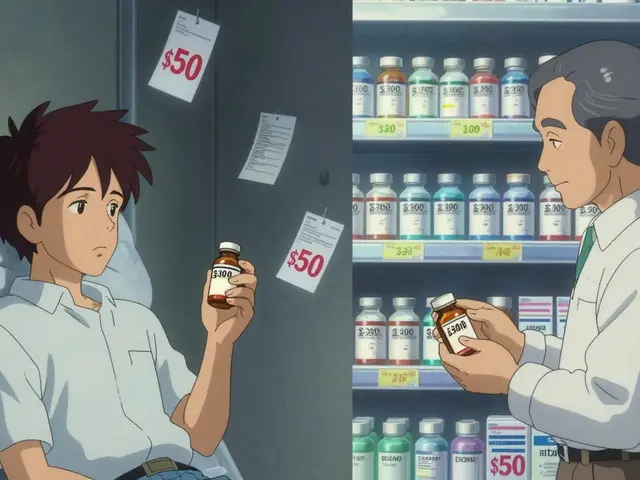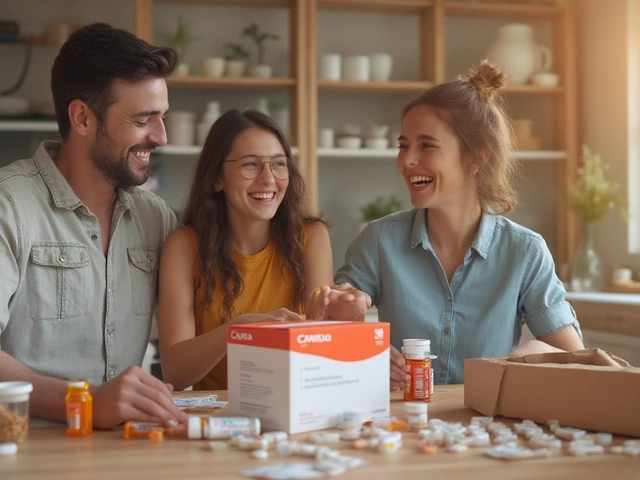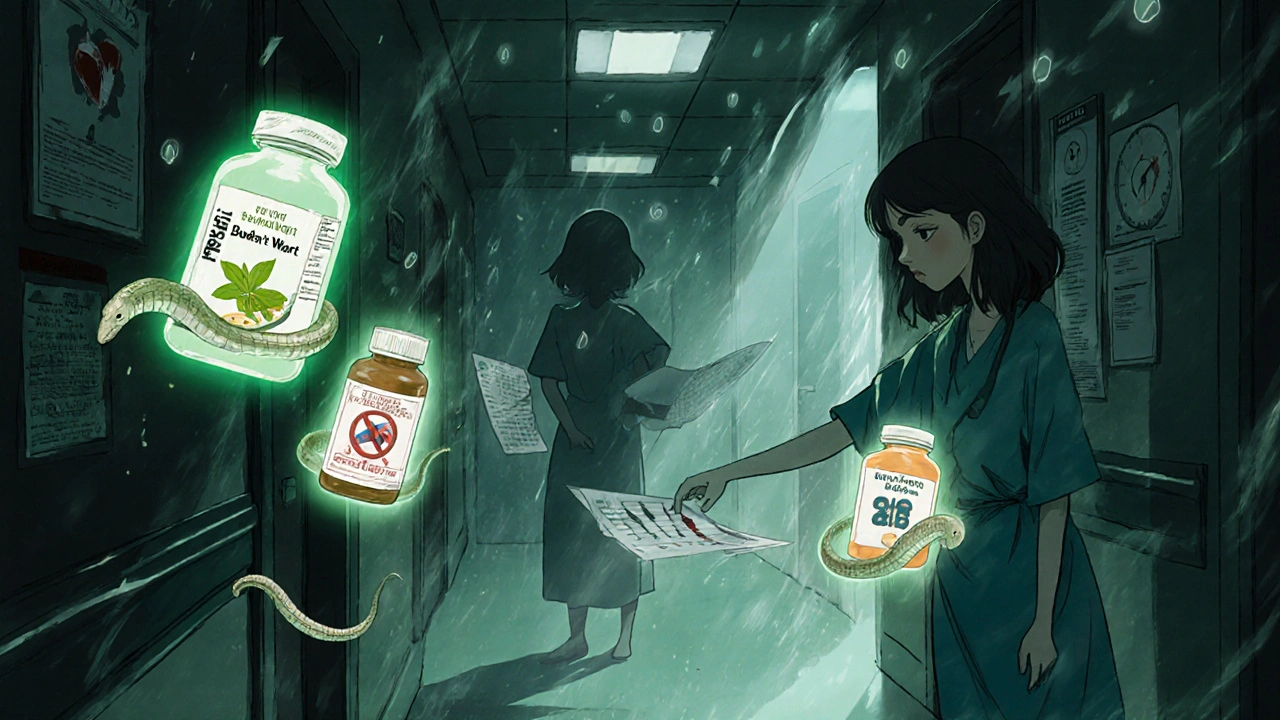
Enter your supplement and medication to see potential interactions. Always consult your healthcare provider before taking supplements with prescription drugs.
People often assume that if something is labeled "natural," it must be safer. You see it on labels: "100% organic," "plant-based," "no synthetic chemicals." It’s comforting. It feels honest. But when it comes to mixing herbal supplements with prescription drugs, that assumption can land you in the hospital - or worse.
These aren’t rare cases. They’re documented risks. Yet, most consumers don’t know. A 2022 Consumer Reports survey found that 68% of people who take supplements believe the FDA tests them for safety before they hit store shelves. That’s not true. Under the Dietary Supplement Health and Education Act (DSHEA) of 1994, supplements are treated like food - not medicine. Manufacturers don’t need to prove safety or effectiveness before selling. The FDA can only act after harm is reported - and even then, enforcement is slow and limited.
That’s why you see long warning labels on prescription bottles. Those aren’t just legal fine print - they’re based on real data. About 8% of hospital admissions in the U.S. are due to adverse drug reactions, and roughly 100,000 deaths occur each year from pharmaceutical side effects. That’s alarming. But here’s the catch: those numbers are tracked, studied, and reported. Every hospital, pharmacy, and doctor is required to report problems. That’s how we learn what’s dangerous.
With supplements? Not so much. The National Poison Control Centers don’t even have a dedicated category for herbal reactions. In 2022, there were only 1,200 adverse event reports for dietary supplements - compared to over 120,000 for prescription drugs. Experts say that gap isn’t because supplements are safer. It’s because people don’t report them. Many don’t think they need to. Others don’t realize their symptoms - nausea, dizziness, irregular heartbeat - could be caused by a supplement they took with their blood pressure medicine.
Take turmeric. It’s marketed as an anti-inflammatory. Sounds harmless, right? But it can thin your blood. If you’re on warfarin or aspirin, adding turmeric supplements could increase your risk of bleeding. Garlic supplements? Same thing. Ginkgo biloba? Can interfere with SSRIs and raise seizure risk. Even something as simple as vitamin K can cancel out the effects of blood thinners.
And it’s not just herbs. Vitamins and minerals can be dangerous too. High-dose vitamin E increases bleeding risk. Too much calcium can interfere with thyroid medication. Iron supplements can reduce the absorption of antibiotics like ciprofloxacin. And no one warns you about this on the bottle.
Pharmaceutical labels list interactions clearly. Supplement labels? Often say nothing. Or worse, they say "no known interactions" - a claim that’s not required to be backed by evidence. A 2023 study in JAMA Internal Medicine found that 70% of patients never tell their doctor they’re taking supplements. That means doctors are prescribing medications without knowing half the picture. That’s how accidents happen.
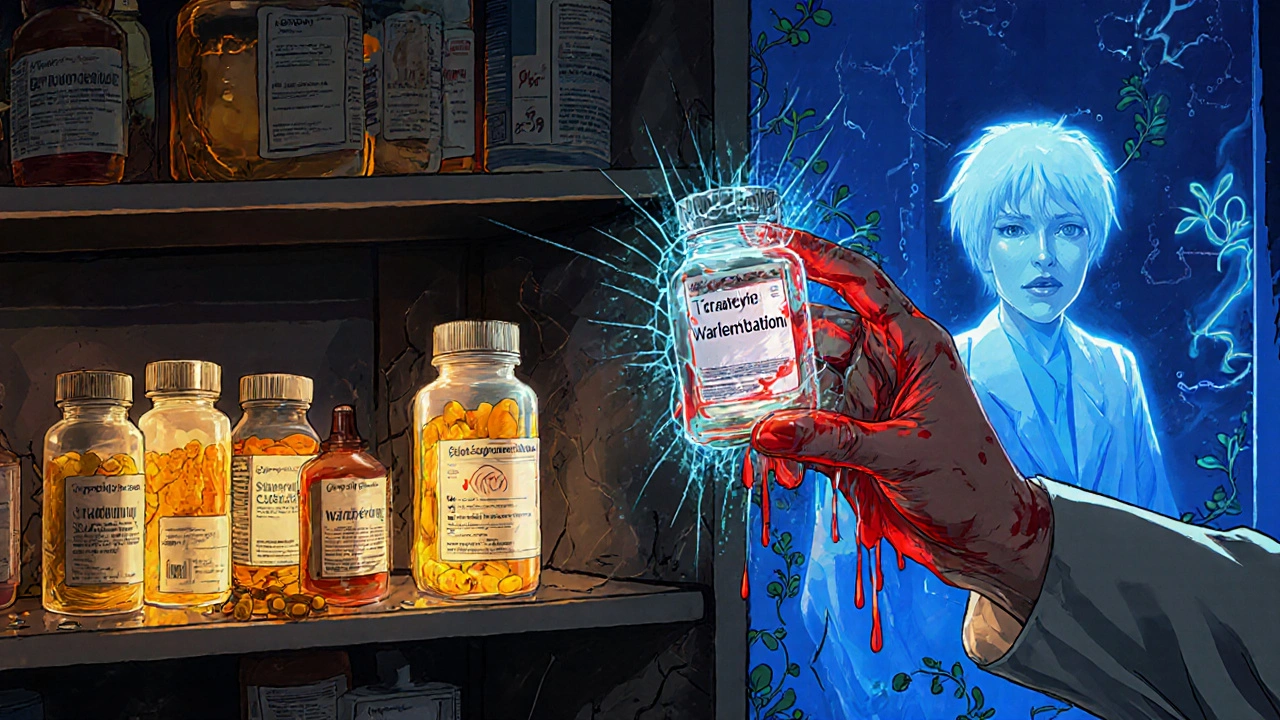
Compare that to pharmaceuticals, where R&D costs average over $1 billion per drug. That’s why big pharma invests in rigorous testing - they have to. Supplements? A small manufacturer can buy powdered elderberry, slap it in a capsule, print "immune support" on the label, and sell it online. No FDA approval needed. No proof required.
The FDA does have some power. They can issue warning letters, recall dangerous products, or ban ingredients like ephedra. But they’re underfunded. In 2023, they issued only 35 warning letters to supplement makers - despite thousands of products on the market with questionable safety profiles. Meanwhile, pharmaceutical companies face hundreds of inspections and millions in fines for minor violations.
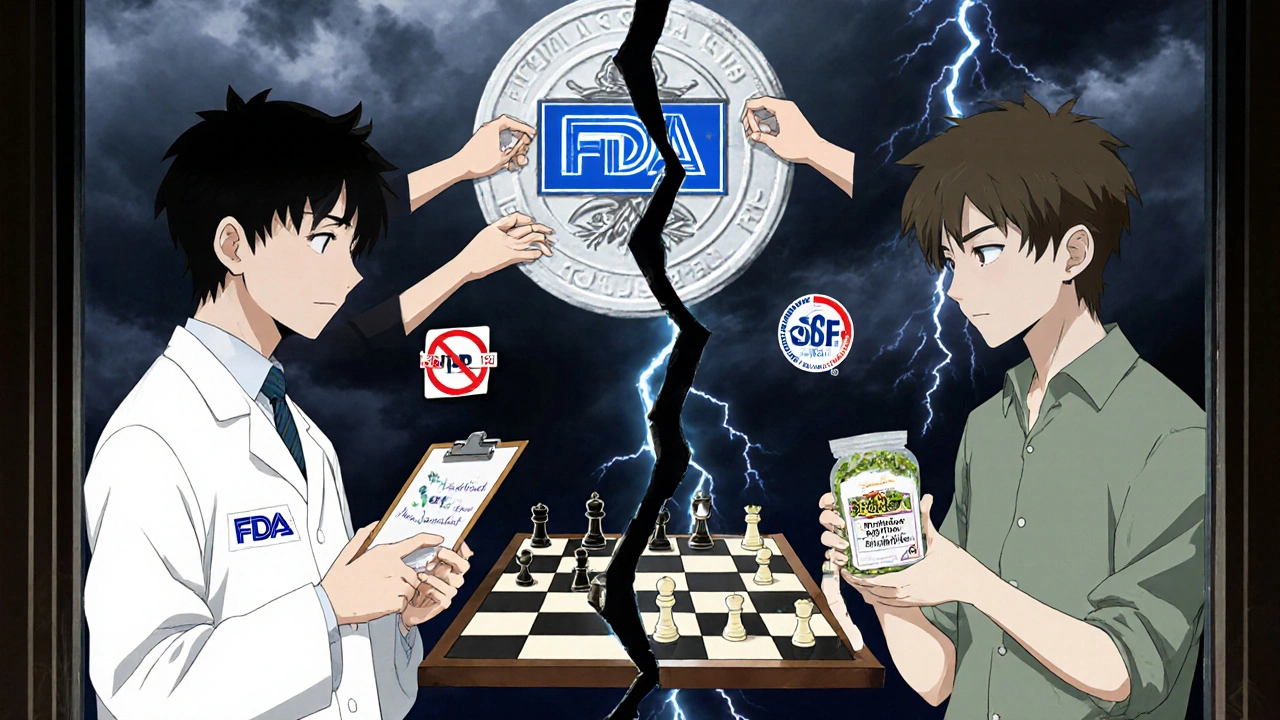
The goal isn’t to fear supplements. It’s to respect them. Just like you wouldn’t take a prescription drug without knowing the risks, you shouldn’t take a supplement without knowing its potential interactions. Your body doesn’t care if a chemical is made in a lab or grown in a field. It only cares about the dose, the timing, and what else it’s mixed with.
So next time you reach for that bottle of "natural" pills, ask yourself: Do I know what’s in it? Do I know how it might react with my other meds? And most importantly - have I told my doctor?
No. Herbal supplements aren’t inherently safer. While prescription drugs have known risks and are closely monitored, supplements often lack pre-market safety testing. Some herbs, like kava and ephedra, have caused serious harm - including liver failure and death. The perception that "natural" means safe is misleading and dangerous.
Yes, and often dangerously. St. John’s wort can reduce the effectiveness of birth control, antidepressants, and blood thinners. Turmeric and garlic can increase bleeding risk when taken with warfarin or aspirin. Even vitamin K can interfere with anticoagulants. These interactions are real, documented, and frequently overlooked by users.
Because of the Dietary Supplement Health and Education Act (DSHEA) of 1994, which classifies supplements as food, not medicine. This means manufacturers don’t need to prove safety or effectiveness before selling. The FDA can only act after a product causes harm - and even then, enforcement is limited due to resource constraints.
Look for third-party verification labels like USP Verified, NSF Certified, or ConsumerLab Tested. These indicate the product was independently tested for purity, potency, and absence of contaminants. Avoid products that make bold claims like "cures cancer" or "all-natural and safe" - those are red flags. Always consult your doctor before starting any new supplement.
Yes. Many supplements - including fish oil, ginkgo, garlic, and vitamin E - can increase bleeding risk during surgery. Others may interfere with anesthesia. Always inform your surgeon about everything you’re taking, even if you think it’s harmless. Most doctors recommend stopping all supplements at least 1-2 weeks before surgery.
Yes. A 2022 study in JAMA Internal Medicine found that 70% of patients never disclose their supplement use to their doctors. Many assume it’s not important, or fear being judged. But this silence creates serious risks - especially when supplements interact with prescribed medications. Always be honest with your healthcare provider.
Until then, the burden is on you. Don’t trust marketing. Don’t rely on labels. Don’t assume safety because something is "natural." Your health is too important for that. Do your homework. Talk to your doctor. Choose verified brands. And remember: just because a product is sold in a health food store doesn’t mean it’s safe - especially when mixed with other medications.
lol i just took turmeric gummies yesterday bc my friend said it "reduces inflammation" 🤷♀️ now im paranoid im gonna bleed out during my next period 😅
bro the supplement industry is a total scam. Pharma spends billions on R&D, but some dude in Punjab buys bulk ashwagandha powder, throws it in a capsule, calls it "ancient wisdom," and sells it for $30 on Amazon. No testing, no accountability. And people wonder why their liver is failing. 🤦♂️
This is an outrage. The FDA is failing the American public. People are dying because of this regulatory loophole. This isn't just negligence-it's criminal. We need immediate congressional action. No more "natural" lies. No more corporate greed masquerading as wellness. This is a public health emergency.
LOL you think pharma is safe? They invented opioids and got rich off addiction. Supplements are just the alternative. The real villain is the medical-industrial complex. Who profits when you're sick? Big Pharma. Who profits when you're healthy? No one. That's why they hate supplements. 🤫
in india we use neem and turmeric since forever and no one dies from it. maybe the problem is not the supplement but the way people take 10 different pills at once. also my grandma took ashwagandha with her blood pressure med and she lived to 98. maybe its not all bad? 😅
they’re hiding the truth. the FDA knows exactly how dangerous supplements are. they just don’t want to shut down the $50 billion industry. think about it-why are there zero warnings on bottles? why do they call it "dietary"? it’s all a cover. the real danger isn’t the herbs-it’s the system that lets this happen.
I had a friend take St. John’s wort with her antidepressants… she ended up in the ER with serotonin syndrome. She didn’t even know it was possible. I’ve since stopped trusting anything that doesn’t come with a 20-page FDA warning label. If it doesn’t have a barcode on the bottle, I don’t touch it.
Interesting perspective. I’ve always thought of supplements as harmless, but this really makes me rethink. Maybe the key is balance-respecting both traditional remedies and modern science. A little caution goes a long way. Thanks for the eye-opener 😊
What is safety anyway? If a plant evolved to produce a compound that affects human physiology, is that any less real than a lab-made version? The body doesn’t care about origin-it cares about dose and context. Maybe the problem isn’t natural vs synthetic. Maybe it’s ignorance.
as a med tech i see this daily. patients come in with arrhythmias and we find out they’ve been taking kava for anxiety and lisinopril for bp. no one tells their dr. and then they’re like why am i dizzy? bro you took 3 herbs and 4 pills and thought it was fine. get the usp label. tell your dr. it’s not hard.
pharma is just corporate poison with a fancy name. i take elderberry every day and i havent been sick in 5 years. if you trust a pill made by a company that paid a lobbyist to kill regulation then you’re the problem
my mom is a nurse and she says the same thing-always tell your doctor what you’re taking. even if it’s just a gummy. she says the worst cases are when people think "it’s just a vitamin" and then end up in the ICU. i now keep a little notebook of everything i take. dumb? maybe. but my life? priceless 💪
